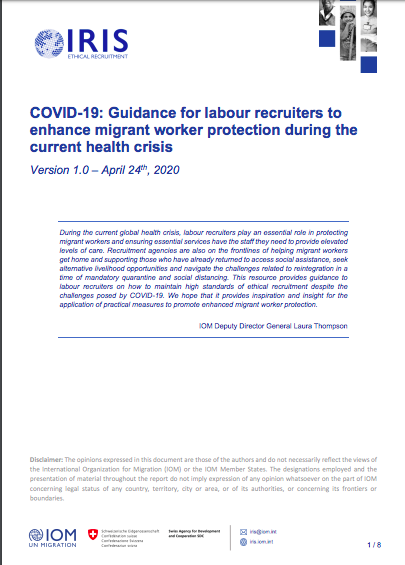During the current global health crisis, labour recruiters play an essential role in protecting migrant workers and ensuring essential services have the staff they need to provide elevated levels of care. Recruitment agencies are also on the frontlines of helping migrant workers get home and supporting those who have already returned to access social assistance, seek alternative livelihood opportunities and navigate the challenges related to reintegration in a time of mandatory quarantine and social distancing. This resource provides guidance to labour recruiters on how to maintain high standards of ethical recruitment despite the challenges posed by COVID-19. We hope that it provides inspiration and insight for the application of practical measures to promote enhanced migrant worker protection.

